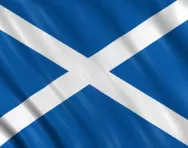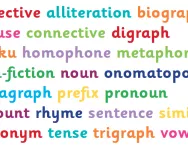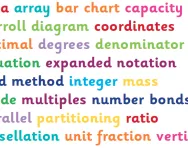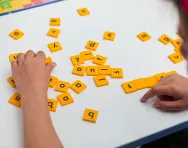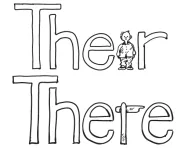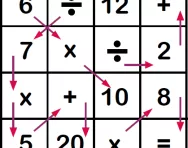Important update from TheSchoolRun
For the past 13 years, TheSchoolRun has been run by a small team of mums working from home, dedicated to providing quality educational resources to primary school parents. Unfortunately, rising supplier costs and falling revenue have made it impossible for us to continue operating, and we’ve had to make the difficult decision to close. The good news: We’ve arranged for another educational provider to take over many of our resources. These will be hosted on a new portal, where the content will be updated and expanded to support your child’s learning.
What this means for subscribers:
- Your subscription is still active, and for now, you can keep using the website as normal — just log in with your usual details to access all our articles and resources*.
- In a few months, all resources will move to the new portal. You’ll continue to have access there until your subscription ends. We’ll send you full details nearer the time.
- As a thank you for your support, we’ll also be sending you 16 primary school eBooks (worth £108.84) to download and keep.
A few changes to be aware of:
- The Learning Journey weekly email has ended, but your child’s plan will still be updated on your dashboard each Monday. Just log in to see the recommended worksheets.
- The 11+ weekly emails have now ended. We sent you all the remaining emails in the series at the end of March — please check your inbox (and spam folder) if you haven’t seen them. You can also follow the full programme here: 11+ Learning Journey.
If you have any questions, please contact us at [email protected]. Thank you for being part of our journey it’s been a privilege to support your family’s learning.
*If you need to reset your password, it will still work as usual. Please check your spam folder if the reset email doesn’t appear in your inbox.
Primary school assessment in Scotland explained
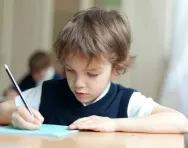
In September 2015, the Scottish First Minister, Nicola Sturgeon, announced plans for compulsory tests to be introduced in all Scottish primary schools, for the first time in more than a decade. Since 2017 children in Scotland have completed Scottish National Standardised Assessments (SNSAs) in literacy and numeracy in P1, P4, P7 and S3.
Teacher assessment were also be carried out using InCAS testing.
Announcing the new testing regime, Nicola Sturgeon said that improving the education of children in Scotland was, 'arguably the most important objective' for her government. The intention was that national testing would give a clearer picture of performance in Scottish and primary schools, ultimately helping to drive up attainment and narrow the gap between children in well-off and deprived areas.
Unsurprisingly, the plans to introduce national primary tests in Scotland had a mixed response. Critics said that the result will be that schools focus on preparing for the exams, rather than teaching a broad curriculum, and that the tests will put pressure on children and reignite the obsession with league tables. However, there are also no plans for the Scottish government to publish league tables based on test results, although it's likely that these will be compiled by independent agencies.
Primary school assessment in Scotland until 2017
Between 2003 and 2017 there was no compulsory national testing for primary school pupils in Scotland. It was scrapped by the then Labour-Lib Dem coalition, in an attempt to get rid of the 'teaching to the test' ethos in schools and reduce the obsession with league tables. Instead, attainment in Scottish schools was measured by the Scottish Survey of Literacy and Numeracy, a procedure that involved a random sample of children in P4 and P7 (and S2) at every mainstream school, who completed the tasks in class time during the month of May.
Literacy and numeracy were tested in alternate years, and individual children's results were not published; the results are simply used to give an overall picture of attainment across the country.
Which pupils take SNSAs?
Every child in P1, P4 and P7 takes the statutory tests. Senior school pupils in S3 are also tested.
When and how do the SNSAs take place?
Children take the assessments once during the school year. There is no set timetable and the assessments do not have to take place at a specific time of year: individual teachers and schools, decide when they will happen for each class and school.
- P1 children take two SNSA assessments: one in literacy and one in numeracy.
- P4 children take three SNSA assessments: one in reading, one in writing and one in numeracy.
- P7 children take three SNSA assessments: one in reading, one in writing and one in numeracy.
- S3 students take three SNSA assessments: one in reading, one in writing and one in numeracy.
Children do not take the reading, writing and numeracy assessments all in one sitting.
The assessments are completed online and are marked automatically. There is no pass mark and the assessments cannot be 'failed'.
Each assessment has between 30 and 41 questions, depending on the year group and subject. The computerised assessment system is adaptive: if a child is finding the questions difficult the questions will get easier, and if a child is doing well, the questions will become more challenging.
The assessments are as short as possible and designed to be completed in around 45 minutes, but there is no time limit.
Do children need to prepare for the SNSA assessments?
Children do not have to revise for the assessments, which are used to help teachers understand how well children are progressing and to plan teaching.
How are the results used?
Scottish National Standardised Assessments data provides information to your child's teacher, which they may choose to share with teacher who will be teaching them in the following year. Children won't be given the results of their assessments but the results will form part of a teacher's complete assessment of a child and be mentioned in parent-teacher meetings.
At a local and national level the SNSA data aims to offer a complete and consistent picture of children's academic progress in Scottish schools. School level data will be available to teachers and local authorities; the Scottish Government will have access to national level data only.
SNSA results will not be published in 'league tables'.

